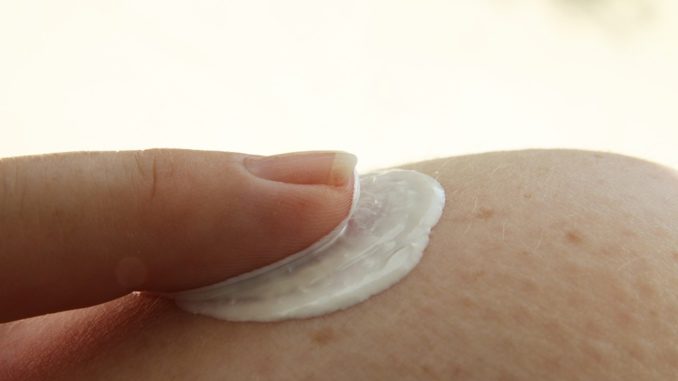
Realm Therapeutics plc (AIM:RLM), a clinical stage biopharmaceutical company focused on developing novel therapeutics in immune-mediated diseases, today announces that the Company has completed enrollment in its Phase 2 study of PR022, Realm’s first-in-class topical IL-4 / IL-13 inhibitor, for the treatment of Atopic Dermatitis. The trial is being conducted in the United States and the Company continues to expect to report top line results in the third quarter of this year.
“This Phase 2 study is designed to demonstrate that PR022, our proprietary topical gel formulation of high concentration hypochlorous acid, has the potential to be a clinically meaningful treatment alternative for patients suffering from Atopic Dermatitis,” said Alex Martin, Chief Executive Officer of Realm. “In pre-clinical models of Atopic Dermatitis, PR022 has shown immunomodulatory effects, without the same immunosuppressive side effects often associated with steroids, which are the current standard of care. This data suggests a potential clinical advantage for PR022 that could be especially beneficial for the large pediatric segment of the Atopic Dermatitis patient population. We look forward to sharing the top line results of this study in the third quarter.”
The Phase 2 study is a randomized, double-blind, vehicle-controlled, multicenter, parallel-group study assessing the safety and efficacy of multiple doses of PR022 in 122 adult patients with mild-to-moderate Atopic Dermatitis. Multiple endpoints are being explored, including Eczema Area and Severity Index (EASI), an investigator-assessed tool used to measure the extent (area) and severity of atopic eczema; Investigator Global Assessment (IGA), an investigator-assessed instrument measuring severity of Atopic Dermatitis on a 5 grade scale; as well as additional assessments of pruritus and quality of life.
The Company also announces that the United States Patent and Trademark Office (USPTO) has issued a notice of allowance for a new patent that expands Realm’s intellectual property portfolio related to its proprietary immunomodulatory technology. U.S. Patent Application No. 15/184,207, entitled “Stabilized Hypohalous Acid Solutions,” provides further coverage for composition of matter for the stabilized formulation of HOCl, for Realm’s gel formulations PR022 and RLM023, as well as methods of treatment with these formulations. The patent includes specific claims for treating Atopic Dermatitis, Psoriasis and Acne.
“This additional patent allowance expands Realm’s intellectual property protection for formulations based on our proprietary platform technology,” continued Mr. Martin. “We believe our technology has broad-spectrum immunomodulatory effects, with potential applications in Atopic Dermatitis, Acne, Psoriasis and potentially other immune-mediated diseases. As previously announced, we plan to file two Initial New Drug (IND) applications – one for RLM023 in Acne, expected by the end of this year, and another for PR022 in Psoriasis expected in Q1 2019.”
About Atopic Dermatitis
Atopic Dermatitis, a serious form of eczema, is a chronic, relapsing, inflammatory disease characterized by itchy, inflamed skin, which poses a significant burden on patients’ quality of life and on the overall health care system. It is most commonly first diagnosed in childhood. Patients with Atopic Dermatitis have impaired function of their skin barrier, which, combined with skin damage as a result of the intense itching and scratching associated with the disease, puts them at risk for secondary infections due to colonization with pathogenic bacteria (particularly Staphylococcus aureus) and changes in the skin microbiome. Atopic Dermatitis affects an estimated 20 million people in the U.S., including up to 20% of children and up to 3% of adults, and prevalence continues to increase.
About Acne
Acne Vulgaris is the most common chronic skin condition. The disease can range from mild to severe cystic acne and is associated with significant physical and psychosocial effects on quality of life, including permanent scarring, depression and anxiety. Two of the main factors involved in the development of Acne are clogged pores and / or the presence of bacteria, leading to irritation, lesions and inflammation. Studies have demonstrated a central role of inflammation in the development of Acne lesions and have opened new opportunities for therapeutic intervention that target inflammation. Acne affects approximately 45 million people, or 14% of the population, in the U.S. Analysts value the prescription market for Acne at close to $4 billion in the United States in 2017, with continued growth expected.
About Psoriasis
Psoriasis is a common chronic autoimmune disorder of the skin characterized by focal formation of inflamed, raised plaques that constantly shed scales derived from excessive growth of skin epithelial cells. Research has identified key cellular and molecular pathways of inflammation that contribute to the pathogenesis of Psoriasis. Approximately 12 million people in the U.S. suffer from Psoriasis, of whom an estimated 7.5 million have been diagnosed with the skin disease, and an estimated 50% to 60% are actively being treated for the disease. Psoriasis is the largest indication in dermatology with, according to analyst estimates, approximately $6 billion in sales in the U.S. in 2017, which can largely be attributed to biologics.
